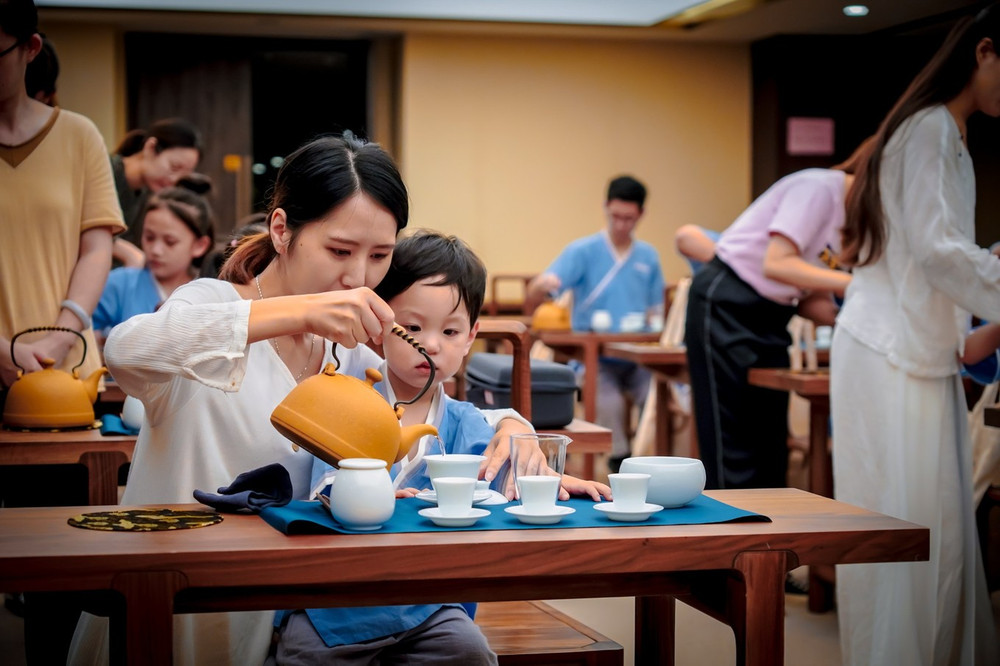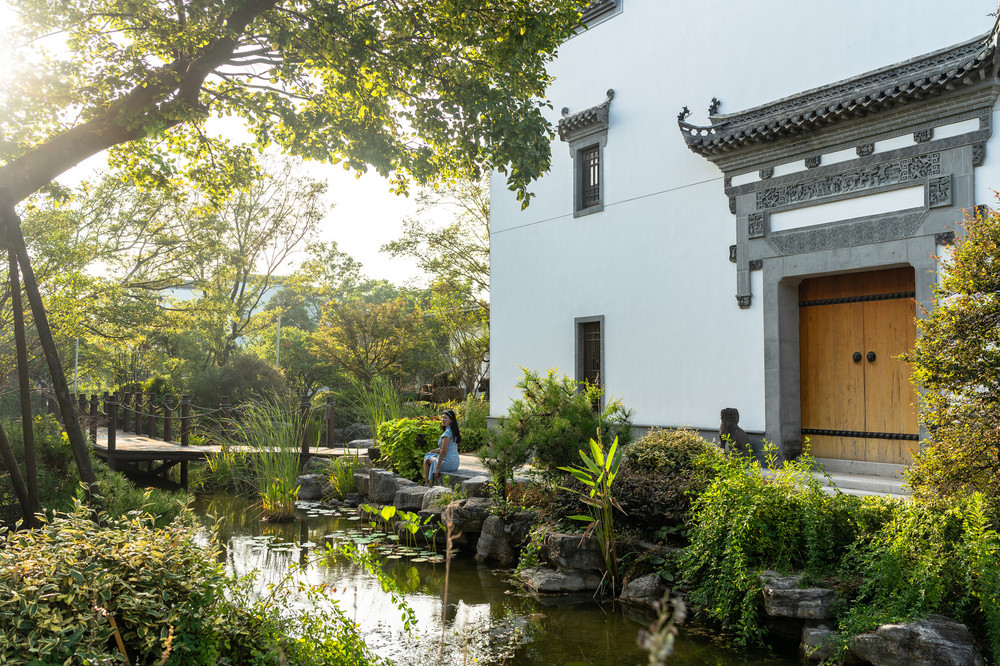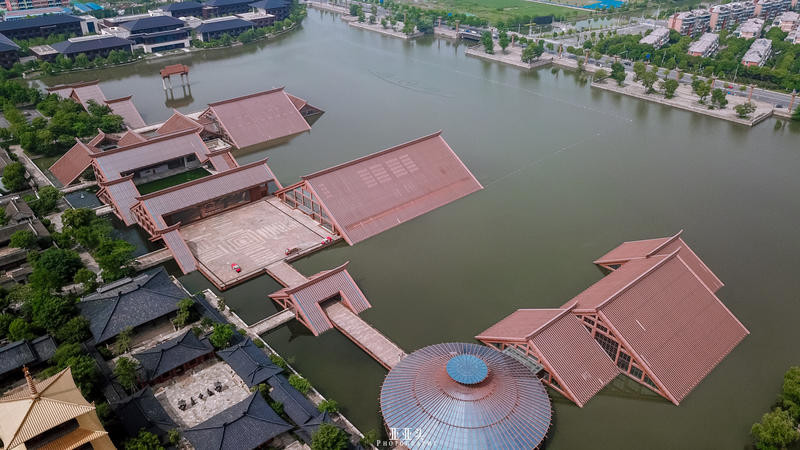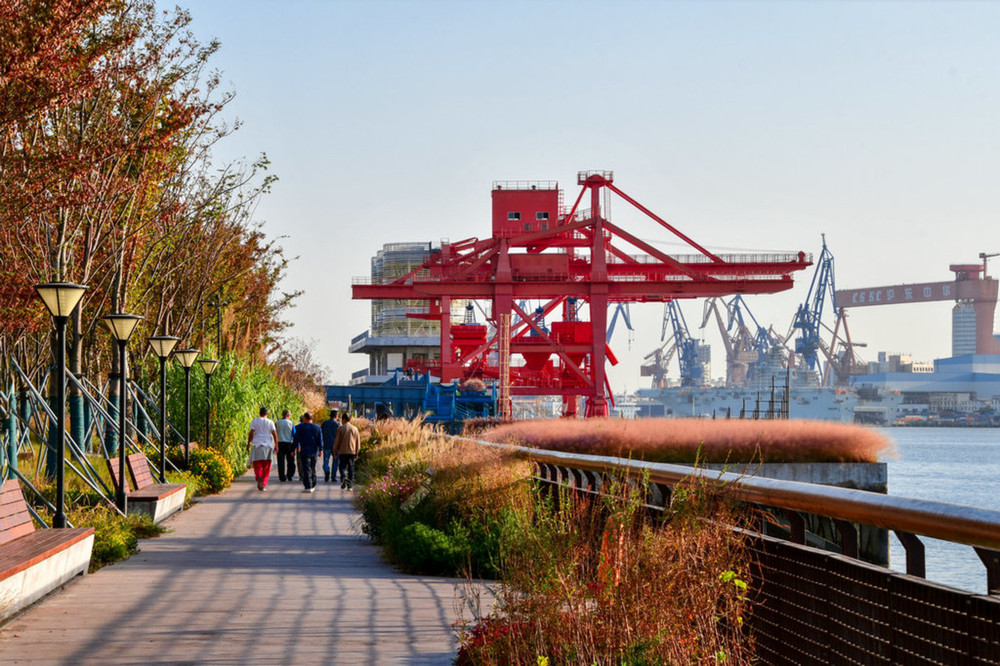Duration: 1 day. With whom: Friends. Ways of playing: Food, photography, self-driving, humanities, independent travel.

The author visited these places: Luzhi Ancient Town, Zhouzhuang, Tongli, Shanghai Jinjiang Hotel, covered bridge, Taihu Lake, Jinji Lake, Yangcheng Lake, Twin Bridges, Ye Shengtao Memorial Hall, Baosheng Temple, waterside homes. Posted on April 19, 2021, at 18:16.
The water town of Luzhi Ancient Town in Jiangsu is the eighth ancient water town in the south of the Yangtze River that the reporter has visited after touring Zhouzhuang and Tongli in Jiangsu, Wuzhen, Nanxun, Xitang, and Xinshi in Zhejiang, and Zhujiajiao in Shanghai. When most people see the character ‘甪’ in ‘Luzhi’ for the first time, they will be puzzled by this rare character. What is the pronunciation of this character that has one more dot than ‘用’? After checking, it is learned that it is pronounced as the fourth tone of ‘lu’, with the sound of ‘lu’.
Arriving at Luzhi (Photography: Feng Ganyong). On the morning of March 29, 2021, after the reporter finished participating in the ‘Third Guan Baocong Ceramic Art Appreciation Exhibition’ held at Shanghai Tower, he set off from the Shanghai Jinjiang Hotel where he was staying. Together with his Shanghai friends Wang Guojian, Huang Qiaomei, Zhang Youshi, Qiu Zelian, Liu Feng, Wang Jinkui, Jin Fukang, Xu Heyin, Luo Jianqing, Ye Renmin, Zeng Weixin, and Wang Jue, they drove for more than an hour to arrive at the water town of Luzhi Ancient Town in Jiangsu.
Stone archway of the ancient town (Photography: Feng Ganyong). The water town of Luzhi in Jiangsu is as old as the ancient city of Suzhou. This is an ancient town with a history of more than 2,500 years. The long history has bred the rich and splendid culture of Luzhi Ancient Town. It is one of the first batch of famous historical and cultural towns in China.
Group photo at the covered bridge of Luzhi Ancient Town. Luzhi is located 25 kilometers southeast of Suzhou City. It is bordered by Wusong River in the north, Lincheng Lake in the south, Suzhou New Industrial Park in the west, and Kunshan in the east. The town covers an area of 75 square kilometers.
The first town of water towns in China – Luzhi. This is the high praise and acclaim for Luzhi, Suzhou City, Jiangsu Province as an ancient water town in China by Mr. Fei Xiaotong, former vice chairman of the Standing Committee of the National People’s Congress. This title is truly well-deserved.
Entering the ancient water town (Photography: Feng Ganyong). Since Luzhi is a water town, it naturally cannot be separated from water. The reporter and his party entered from the stone archway in the north of the ancient town. After walking a short distance, they passed a long covered bridge. Looking around on the bridge, they could already see the beautiful scenery with shimmering water. It can be said that water is the soul of Luzhi Ancient Town. Here is located in the Taihu Lake Basin. It is a typical water town with water dividing, water systems winding, and water surrounding. It is known as the ‘hall of five lakes’ and the ‘thoroughfare of six marshes’.
Water town and marsh country (Photography: Feng Ganyong). The ‘hall of five lakes’ refers to its location facing Chenghu Lake, Wanqian Lake in the south, Dushu Lake and Jinji Lake in the west, and Yangcheng Lake in the north. The ‘thoroughfare of six marshes’ means it has six waterways including Wusong River, Qingxiaogang, Jiepu, Dongtang and Dazhi Port.
Luzhi is a town with a crisscrossing network of waterways and a dense layout of bridges. The streets are built along the water, and people live by the river. The town has a simple and elegant appearance with a serene and tranquil charm.
At the small square in Luzhi, visitors can take photos with the ‘Luzhi’ sign memorial stone (Photographer: Huang Qiaomei). From here, several narrow paths along the water lead into the ancient town. The narrow streets and alleys by the water are lined with shops and restaurants selling a variety of goods, creating a bustling atmosphere full of the ancient town’s cultural essence. While wandering through the ancient town, one can see the beautiful water features# Luzhi Ancient Town: A Charming Water Town with Rich History
## Interconnected Bridges and Streets
The town’s bridges and streets are interconnected, the rivers are connected, and famous historical sites are scattered throughout every corner. This interconnectedness gives Luzhi Town a unique charm that is hard to find elsewhere.
## Ancient Ginkgo Trees and Ye Shengtao Memorial Hall
Another feature of Luzhi Town is the ancient ginkgo trees. There are seven ginkgo trees in the town, which are particularly beloved by the renowned educator and literary figure, Mr. Ye Shengtao. After his death, he was buried next to four of them. The local government has built the Ye Shengtao Memorial Hall for people to visit and admire. However, it is regrettable that due to the high entrance fee of over 70 yuan at the Bao Sheng Temple where the Ye Shengtao Memorial Hall is located, it was not possible to visit. It is puzzling that the ‘Ye Shengtao Memorial Hall’ in the ancient town has become a patriotic education base in Jiangsu Province, yet the local arrangements are so perplexing…
## The ‘People Living by the Water’
Taking a photo in Luzhi (Photographer: Huang Qiaomei). The ancient town of Luzhi still retains streets paved with pebbles and granite, with dark tiles, white walls, wooden doors and windows, and wide beams and eaves on both sides of the deep alleys. Most of these ancient buildings were built during the Ming and Qing dynasties. There are 58 alleys in the ancient town area, some as deep as 150 meters, which is quite rare. The small boats on the riverbed come and go in an orderly manner. Enjoying the swaying small boats (Photographer: Wang Guojian).
## Built Along the Water
Here, you will find that Luzhi Ancient Town was built along the water, with streets in front and rivers behind, and people living by the river. Strolling through the ancient town, you can appreciate the town’s scenery. Observing the ancient bridges and riverbanks, the swaying tourist boats, and the interplay of small bridges, flowing water, and people’s homes, it is really a unique charm that leaves a lasting impression.
## Residential Buildings by the Ancient Town Water
Residential buildings by the ancient town water (Photographer: Feng Ganyong). When people visit Luzhi, many ask about the origin of the name ‘Luzhi.’ According to ‘Fuli Chronicles,’ Luzhi was originally named Fuli, named after the ‘Fuli Pond’ to the west of the town. Later, due to the presence of a direct port to the east of the town, leading to six places with a water flow shape resembling the character ‘Lu,’ the town was renamed ‘Luzhi.’
## Historical Significance and Mythical Connection
Historical records also tell that the ancient unicorn-like mythical beast ‘Luzhi’ once inspected the land of China and passed through Luzhi, recognizing it as a land of good feng shui. Therefore, it settled in Luzhi for a long time, and since then, Luzhi has been free from war, famine, and water disasters, with people enjoying abundant food and clothing every year.
## Characteristic Ao Zao Noodles
The thousand-year-old Luzhi ancient town boasts a rich historical culture. The historical sites, ancient bridges, streets, residential buildings, and the ancient ginkgo tree with a history of over 1300 years are all truly admirable. Dining at a noodle restaurant (Photographer: Feng Ganyong). Hearing that the Ao Zao noodles in the ancient town are distinctive, we visited a small shop by the water called Langqiao Ao Zao Noodle Restaurant to taste them. The restaurant’s signature dish, a bowl of duck and abalone Ao Zao noodles, was extremely delicious. The tender duck meat with large pieces of fish fillet was unexpectedly affordable, costing only 30 yuan per bowl. It is truly delightful to enjoy such good value and characteristic cuisine in a tourist area.
## A Rewarding Trip
Compared to the regret of not being able to visit the Ye Shengtao Memorial Hall inside a temple due to high ticket prices, the journalist felt somewhat comforted… Nevertheless, the trip to the water town of Luzhi ancient town was rewarding and has once again left behind an unforgettable and beautiful memory in life. (Photos and text: Feng Ganyong)









